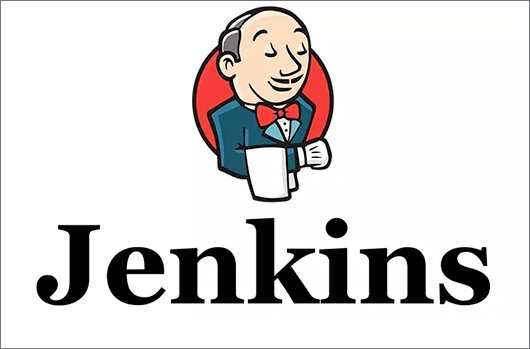In software development, continuous integration is a practice in which members of a team integrate their code into a shared repository frequently every day. Once the code is committed, it is built into the software and the software is then tested immediately. After successful testing, the code is deployed into the production environment. Code integration, testing, and deployment is a continuous process in an automated environment hence continuous integration. At the core of DevOps and continuous integration (CI) is Jenkins, a server used to build CI environments, but we shall talk about this later. Most DevOps developer or engineer roles will list Jenkins certification as a requirement.
The continuous integration (CI) environment is made up of the CI Server, source control system, automated build, and automation testing environment. These tools together host, monitor, compile, test, document, and update code changes. This practice has significantly shortened the time it takes to develop software and minimized integration hitches first because a good part of the environment is automated and secondly because members of the same team work in close collaboration with each other.
What is Jenkins
Jenkins is an open-source continuous integration server that facilitates the automation of some build, test, and deploy tasks in software development to achieve continuous integration and continuous delivery. Jenkins makes it possible for developers to build and deploy software rapidly.
Jenkins is built in Java language and comes with around 1600 plugins that allow it to integrate with tools used in the various stages of the software development life cycle to support continuous integration. Jenkins plugins fall into five categories including UI, build management, source code control, administration, and platform plugins.
Advantages of Jenkins
- Jenkins supports all activities throughout the software development life cycle from design, building, testing, documenting, to deploying the software.
- Jenkins is a transparent platform that is easy to use to set up a CI/CD environment and one that can be easily expanded. It also supports cloud-based architecture and can, therefore, be used on cloud platforms.
- There are numerous plugins that can be integrated with popular technologies to extend the functionalities of Jenkins.
- Jenkins enjoys a large, vibrant, and active community where one can learn and get support in accomplishing projects.
- It’s a free and open-source tool
- It’s easy to create a new Jenkins Plugins if you don’t get the one you need
- Jenkins is written in Java
- It is available for all kinds of platforms and operating systems
Jenkins popularity
Jenkins has been nicknamed “engine of DevOps” as it is mostly used in DevOps environments. This technology has been adopted widely across the IT industry as it can also be incorporated in the cloud. Jenkins professionals are trained to run it on cloud platforms like AWS, Google, Azure, and IBM. Similarly, with Jenkins, developers can leverage container technologies like Docker and Kubernetes to deliver reliable products with great flexibility and speed.
There is no doubt that Jenkins is ranked as the top open-source server for managing DevOps activities from code management through to production.
Recent statistics indicate that Jenkins has achieved various milestones within the last year
- There has been a growth of 46% of active Jenkins installation for the period between August 2018 and July 2019 to account for 255,956 new total installations.
- The remarkable growth of the Jenkins pipeline jobs with about 254% increase in 2019 compared to the previous year shows that organizations across various industries are making a huge investment in automation practices for software development using Jenkins.
Industries that hire Jenkins certified individuals
Jenkins’ application spans across various industries. Industries that are highly likely to hire certified Jenkins professionals are computer Software at 32% and Information Technology and Services at 12%. Industries that will hire top hiring skilled people to support their work with Jenkins in order of their ranking include:
- Computer Software
- Information technology and related services
- Healthcare
- Financial services
- Computer hardware
- Internet
- Retail
- Higher education
- Insurance
- Telecommunication
Available data shows that there are about 38,669 organizations using Jenkins globally although most of these companies are located in the USA and are mostly small (in terms of the number of employees) companies in the computer software industry.
How to be hired as Jenkins expert by top industries
To be hired, professionals need proof of skills and experience which is why it is recommended that they acquire a Jenkins certification.
There are two Jenkins certifications:
- Certified Jenkins Engineer. This certificate demonstrates that you have the knowledge and accompanying experience to effectively use the servers and plugins in the open-source Jenkins ecosystem.
- Certified CloudBees Jenkins Platform Engineer. This certification is issued to demonstrate one’s knowledge and skills in using CloudBees Jenkins Platforms which is the enterprise extension of Jenkins.
Having Jenkins Engineer Certification places you ahead of the competition in top hiring industries like computer software and communications. This is so because it equips you with the skills required to configure and deliver Jenkins projects. This is certification is good for both seasoned users of Jenkins as well as beginners who are keen to learn the fundamental aspects of Jenkins including:
- Performing all the expected responsibilities expected of a Jenkins engineer
- Being a developer that can create, configure, and manage CI and CD pipelines where required in a project
- Demonstrate competency in administrative features like user management, control of permissions, distributed builds, and remote access of API.
Conclusion
Jenkins boasts of more than one million users across the world and the numbers are increasing. This is because Jenkins promotes team collaboration in building, deploying, and delivering high-quality software fast. In essence, this is what client expectation of software development has become therefore software developers and engineers have to match up to deliver value. Another big advantage that Jenkins offers is automation which helps in delivering standardized and consistent quality software.















Comments